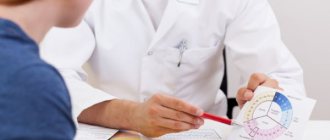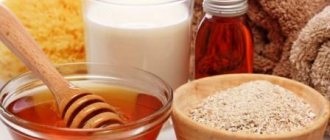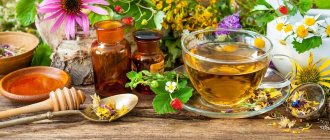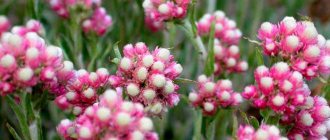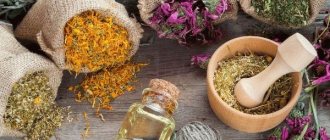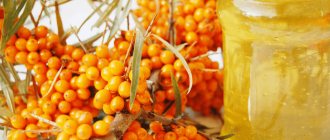Menopause is a rather difficult period in the life of every woman. Sometimes it goes away almost unnoticed, and sometimes its manifestations are so unpleasant and painful that one has to resort to the use of medications and traditional recipes. Unfortunately, official medicine in this case only offers hormonal therapy, but it is not always appropriate. Then it’s time to use natural remedies. Oregano is a plant that has a beneficial effect on the entire body and helps to survive a difficult period, relieving unpleasant symptoms.
Benefits of oregano
The composition of oregano is very rich in vitamins, oils and other beneficial substances. They are useful not only during menopause, but also in a woman’s normal state.
Useful properties of oregano.
Components that the plant is rich in:
- Tannins. They are the ones who have an antibacterial effect. Relieves bleeding and inflammation.
- Vitamins B and C. Strengthen the immune system. They have a beneficial effect on the functioning of the heart and other body systems.
- Coumarins. Helps with gastrointestinal disorders.
- Phytoncides. They are herbal antibiotics.
- Essential oils. They have a beneficial effect on the hormonal system and skin.
These substances can also slow down aging. The appearance immediately improves. Help restore the menstrual cycle. Taking oregano during menopause and hot flashes will compensate for the lack of female hormones in the body.
The healing properties of oregano for women during menopause
The value of oregano as a medicinal plant is due to the vitamins it contains (C, B1, B2), oils, tannins, alkaloids, phytoncides, coumarins, thymol and other healing organic compounds.
Essential oil with a strong, pleasant aroma increases vitality and performance, but at the same time reduces excessive stimulation of the nervous system and eliminates nervousness.
From the point of view of the benefits of use during menopause, the greatest interest is that oregano herb contains phytoestrogens, which are molecules of plant origin that have the properties of female sex hormones.
By partially replenishing the lack of estrogen, it is possible to alleviate menopause:
- stabilize the emotional background,
- slow down skin aging,
- improve the condition of hair and nails,
- strengthen blood vessels and bones,
- improve sleep and overcome migraines.
Maternal herbal medicine will be the best choice for women who have contraindications to hormonal therapy or who are afraid of side effects from taking estrogen.
Combating menopause symptoms
If you use medicines based on this plant correctly and regularly, you will notice amazing effects. They will definitely please you. First, such unpleasant symptoms as hot flashes and hyperhidrosis will disappear. You will no longer feel hot or cold, and sweating will also decrease.
Next, the vaginal mucosa will normalize, dryness and itching will go away. This way you can prevent a disease such as vulvovaginitis, which affects many women during menopause.
The condition of the skin will improve. The pores will shrink. The walls of blood vessels will become stronger, which is very important in such a fragile condition as menopause.
Sleep is normalized, which will also ensure good health. After all, insomnia at such a time is a very common and dangerous symptom. Lack of sleep is very harmful to health.
Taking oregano herb during menopause has a sedative effect, which will help you cope with an unpleasant emotional state and anxiety. Hot temper and irritation, tearfulness will go away.
If you notice unpleasant headaches, then oregano will come to your aid. If you do not ignore oregano treatment and regularly take products based on it, you will definitely be able to overcome hot flashes.
ethnoscience
Negative manifestations of menopause include mood swings, malaise, very active sweating, increased heartbeat and “hot flashes”. The latter are characterized by hot flashes, which often cause redness of the skin and insomnia.
Of course, such a bouquet of symptoms will not leave anyone indifferent, so medicine is now trying to offer women as many drugs as possible that will allow them to forget about the troubles of menopause. But there are those representatives of the fair sex who do not like to use a lot of medications. For them, we can offer the following solution - folk remedies.
Collection and storage
Oregano blooms once every two years. You will understand that she has blossomed just by the smell. It's pleasant and sweet. The stems need to be cut with a knife, the top 10 cm.
You can grow grass in your garden or even at home. Wild grass will also work, there is no difference. Next you need to dry it by hanging it in bunches.
Indicators of excellent harvest are preserved color and smell. The stems should break. The dried herb must be chopped and tightly closed. Shelf life – up to three years.
You can buy ready-made preparations in pharmacies at an affordable price.
When and how to collect oregano
This plant begins to bloom only in the second year after planting. During the entire first year, you should not expect help from her with diseases; the main thing is to allow the mother to gain juices and grow strong and undamaged by diseases. It blooms in late July or early August, spreading a sweet aroma around the pink inflorescences.
You should not pick oregano with your hands, as this can damage the rhizome and ruin the entire plant. It is better to cut the stems with a knife at a height of about fifteen centimeters. It should be remembered that you will not get as much yield from a wild mother plant as from one that you grew and fertilized yourself. Any plant needs to be given rest after you have cut a lot of greenery, and fed with mineral fertilizers.
Recipes
Let's look at how to take oregano during menopause and hot flashes. Here are a few recipes that you can make yourself at home.
Proper preparation and use will help you combat menopausal symptoms.
Decoction
What does oregano look like?
To prepare the decoction you will need two tablespoons of dry collection. Next, you need to add half a liter of water to the container. The resulting mixture should be cooked for 15 minutes over low heat.
- Next, you should cool the broth and strain it.
- Stores for about 2 days at low temperature.
- Take 50 ml before meals three times a day.
- Treatment lasts two weeks. After some time, repetition is allowed.
Classic infusion
Infusion with water is performed as follows. You need to pour 400 ml of boiling water into a container, into which you then pour about 15 grams of oregano collection. Then close the lid and wait 2 hours.
After the time has passed, it is necessary to strain the resulting mixture. Take one teaspoon three times a day before meals. Shelf life of the liquid: 2 days in the refrigerator.
The recipe is very simple, so it can be re-prepared over and over again.
Alcohol infusion
To prepare this infusion, you need to pour 15 ml of chopped herbs with good vodka.
Next, in a dark cabinet you need to put a container, closed with a tight lid, containing the infusion. Wait a week, constantly shaking the contents. Afterwards, filtering is required.
During menopause, take an infusion of oregano, 40 drops 3 times a day before meals. The course lasts two weeks. Repetition is allowed.
Excellent for treating nervous system disorders and insomnia.
Oil
Oregano can be purchased in stores and pharmacies.
To make oil from oregano, you need to pour 4 tablespoons of the herb with oil. Any vegetable in a volume of 500 ml will do.
The resulting mixture should be stored in a dark cabinet, shaking regularly. Next, straining will be required.
Oil can be used to season food.
Juice
Rinse the fresh collection under water and remove spoiled leaves.
The juice can be squeezed out with a press or a special device. Can be diluted with fruits and berries for a richer taste. Can be stored for no more than one day.
Take three times a day before meals. Treatment lasts up to three weeks.
Contraindications
Before taking oregano during menopause, you need to undergo an examination by a gynecologist in order to exclude or identify contraindications to its use. It is also necessary to inform the doctor about other medications used, a history of allergic reactions, and other chronic or acute diseases.
The following conditions are contraindications to treatment with oregano:
- use of estrogens;
- diseases of the gastrointestinal tract: gastritis, gastroduodenitis, peptic ulcer;
- pancreatitis, liver pathologies;
- renal failure, urolithiasis;
- acute or chronic cholecystitis, gallstones;
- arterial hypertension;
- severe vascular atherosclerosis;
- heart failure;
- allergy to grass and its components.
Oregano is strictly contraindicated for pregnant women due to the increased risk of miscarriage.
The use of medicinal herbs in the presence of such contraindications can lead to a deterioration in the patient’s condition and cause an exacerbation of pathologies.
If any discomfort, rashes, pain or other symptoms appear, you must immediately stop treatment and seek medical help.
Preface
Menopause is not a disease requiring treatment, but a completely natural process associated with the end of the biological terms of reproductive functions in women.
Different women tolerate this specific transitional state of the female body in different ways. Some people only rejoice at the cessation of menstruation and do not feel any negative manifestations of menopause on the part of the body, others suffer both morally - they perceive menopause as a “sexual disqualification”, and physically - they suffer from headaches, insomnia, increased sweating, hot flashes, and may even experience serious problems with heart.
Nature dictates that with age, ovarian function gradually fades away. Biology says: “By this time, a woman should have already become a mother, it’s time to switch to another mode.” There are fewer and fewer sex hormones, and menstruation becomes less frequent. After the last menstruation, a woman completely loses the ability to become pregnant. On average, this occurs between 50 and 52 years of age. Since hormones are associated not only with the sexual sphere, a decrease in the amount of ovarian hormones - estrogen and follicle-stimulating hormone - also affects metabolism, blood circulation, nervous and skeletal systems.
For many women, the new phase of life passes almost unnoticed, except that old problems often bother them. And if new ones appear, then you can deal with them yourself. You need to do fitness and regular morning exercises. Pay special attention to the press.
Sometimes menopause is difficult. A woman may experience hot and cold flashes, a sudden rise in temperature, rapid weight gain, thinning bones, and bruising. The risk of developing diseases such as atherosclerosis, angina pectoris, hypertension, and osteoporosis increases.
In most cases, menopause begins around age 47, followed by menopause at age 52. There may be exceptions - late menopause, which begins after 60 years. It is impossible to cancel it, since science has not yet figured out what determines the stoppage of ovarian function. Late menopause occurs in women who lead an active lifestyle, have given birth to several children, and have had late births.
Medicinal herbs to help
Monitor for possible manifestations of an allergic reaction. Plant estrogens are found in parsley, sage, chamomile flowers, sweet clover, licorice root and hops, only in smaller quantities. You can delay its approach and restore menstruation at the initial stage with the help of medications, the choice of which is currently quite large, but it is better to turn to traditional medicine and use herbs.
- Hot flashes during menopause treatment without hormones reviews
- Uterine fibroids symptoms and signs during menopause treatment
- What to take for hot flashes during menopause
- The most effective medications for menopause
- How to take vitamin A during menopause
- Drugs for menopause price
- From menopause angelique reviews
- Tablets for menopause Estrovel
Features of application
If during therapy you experience nausea, migraines, abdominal pain, skin rashes, heartburn or constipation, you should immediately stop using oregano-based products and consult your doctor. In this case, you may need to undergo additional examination.
To obtain the maximum effect, maternal treatment can be combined with taking vitamin complexes, drugs containing calcium, sedatives and lipid-lowering drugs.
The essence of the phenomenon
Menopause is accompanied by changes in hormonal levels and a decrease in estrogen levels, deterioration of the thyroid gland, changes in the turgor of the skin, nails, hair, and changes in the functioning of the reproductive system.
There is a certain risk group for the onset of early menopause. This includes representatives of the fair sex with problems of the genitourinary system and disorders of the thyroid gland. Often the provoking factor for the early decline of ovarian function is diabetes mellitus, poor lifestyle, poor environment, obesity, sedentary lifestyle, taking contraceptives and overly strict diets. Women who smoke and abuse alcohol will always be at risk. For them, not only does menopause come earlier, but it is also accompanied by the most serious complications.
It is within the power of a woman to make sure that menopause, even if it is early, passes more unnoticed and does not leave behind unpleasant complications.
– First of all, it is not recommended to refuse sexual intercourse during this period. Good, high-quality sex will not only help minimize hot flashes, but will also make a woman calmer.
– It is important to prevent diseases that may arise during menopause. This is especially true for osteoporosis.
– During early menopause, a special diet is always prescribed. It allows you to maintain the body in the desired shape and prevents it from aging prematurely. The diet should include more seafood, fish, fresh vegetables, fruits and durum wheat pasta. Carbohydrates are especially useful during climatic periods. But you should stay away from sweet, salty and spicy foods. It is better to replace them with foods high in calcium.
– Moderate physical activity and walking will be very useful not only for improving your health, but also for lifting your mood.
– They are at risk for developing a heart attack or stroke. Pathology often negatively affects the condition of blood vessels, which leads to impaired blood supply.
– There is a slowdown in cholesterol metabolism, and this threatens atherosclerosis.
– The development of neoplasms, including malignant ones, is often noted. If there was previously a cyst or other problems in the mammary glands, they can progress to the tumor stage.
– During menopause, bones suffer greatly. The problem can lead to the development of osteoporosis.
Types of menopause
Women produce 2 types of sex hormones, estrogen and progesterone. The first, in turn, has three forms - estradiol, estrone and estriol. These substances are responsible not only for a woman’s ability to bear children, but also for all metabolic processes in the body, which is why during the period of age-related adjustment, patients may experience disruptions in all organs and systems.
Taking estrogen during menopause helps to compensate for the deficiency of sex hormones that occurs due to the decline of ovarian function. However, it is not recommended to take estradiol in its pure form. This substance can provoke the degeneration of cells into a malignant form and the growth of various neoplasms.
Today, estriol is used for hormone replacement therapy in premenopausal women. This form is much safer, but when prescribing medications based on it, it is extremely important to calculate the correct dosage. With an increased content of estriol, side effects such as nausea, vomiting, dizziness and general malaise may occur.
In the second phase of menopause, the level of progesterone in the body also drops. This substance is responsible for bone density, emotional stability and weight correction. With a lack of progesterone, the patient may notice the growth of unwanted hair, weight gain, dry skin, etc. However, an excess of this substance can lead to undesirable consequences, namely depression, obesity and digestive disorders. Progesterone can only be prescribed by a doctor after clinical blood tests.
There are 3 stages of development of this process, during which their symptoms and manifestations appear. This:
- Premenopause. Begins when irregular menstrual cycles begin until they stop completely
- Menopause. Lasts for a year after the cessation of menstruation.
- Postmenopause. It may be early, which begins after the second period and lasts 5 years. This is followed by the late phase, which lasts another 5 years.
The complete completion of the restructuring of the body continues until approximately 65-70 years.
Possible complications
In the process of hormonal and other changes that occur in the body during menopause, unpleasant accompanying complications may arise. This:
- Frequent fractures
- Itching in the vaginal area
- Depressive states
- Atrophic changes
- Dyspareunia
- Bladder problems
- Uterine bleeding
- Allergic manifestations
- Endometrial neoplasia
- Discomfort during intercourse
- Atrophic vaginitis
Failure to comply with the dosage and dosage schedule may lead to menstrual irregularities. There is no need to take medications for menopausal symptoms during pregnancy and lactation. During administration, an allergic reaction may occur, in which case treatment will have to be stopped.
It is worth remembering that only the therapy that was drawn up together with the attending physician will help.
